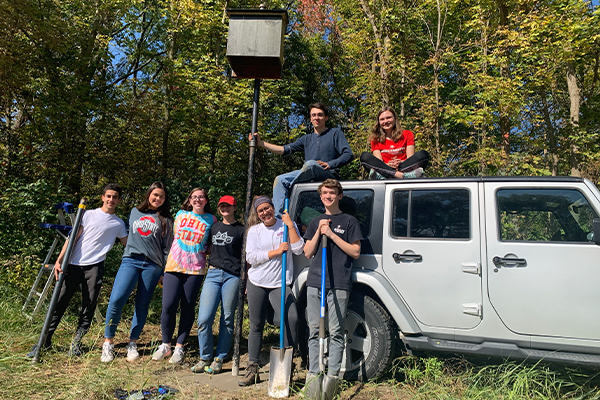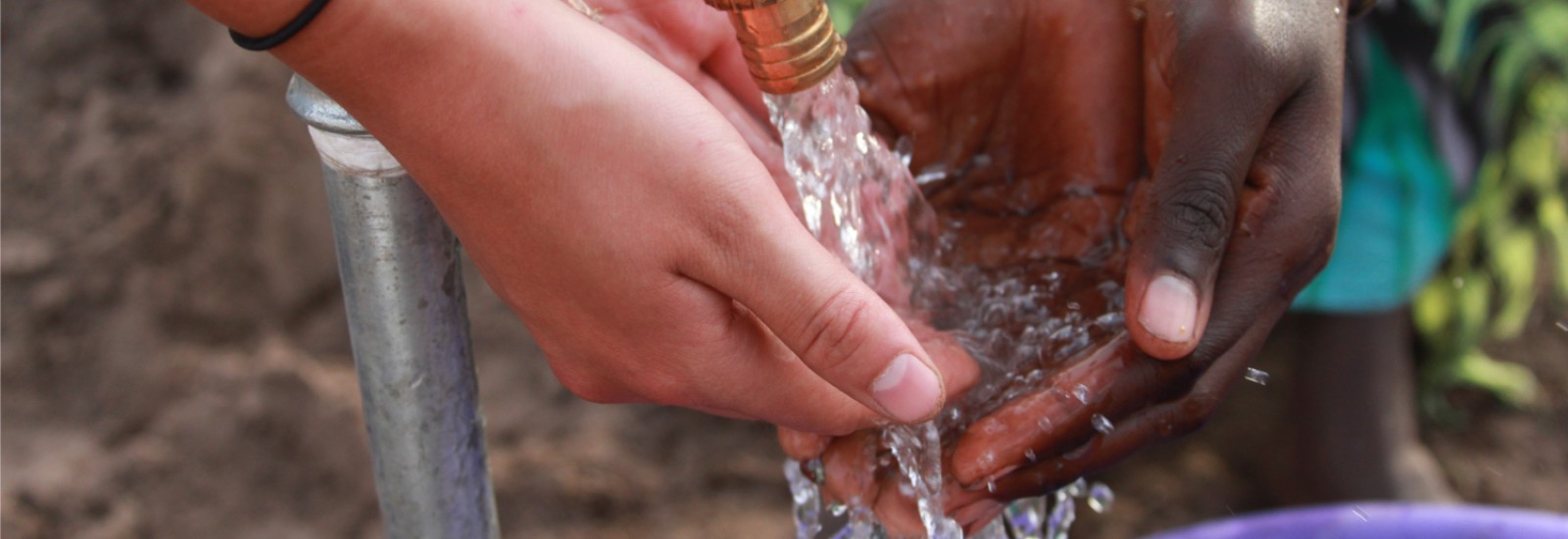By: Meredith Oglesby
Imagine receiving less than a millimeter of rain in a four-month period. Residents of Gambia face this challenge every year. With the help of Ohio State’s Engineers without Borders (EWB) student organization, Gambia’s community of Njau has greater access to a sustainable water source.
EWB is an international organization that applies engineering solutions to help communities world-wide sustainably meet their basic needs. Ohio State’s student-led chapter provides professional development and creates engineering service projects for students to get real-world engineering skills.
For the past four years, Ohio State students have been developing a long-term sustainable solution to reduce the burden of the dry season on crop yields in Njau. With access to a sustainable water source, families are healthier and crops can thrive for greater food growth and women have the ability to gain a sustainable source of income.
In December 2019, students completed the most expansive portion of the project and completed a solar power borehole irrigation system. Women can use this year-round for an expansive garden.
“We are so incredibly thrilled to hit an incredible milestone with the women we are working with, and we look forward to expanding our efforts!” says Maggie Miles, fifth-year industrial and systems engineering student and current president of Ohio State’s EWB.
EWB orginally planned to return during the summer of 2020 to continue their progress of increasing access to a sustainable water source for agricultural purposes. With the outbreak of COVID-19, the group is now reevaluating their plans and will make a definite decision by mid-May for the possibility to travel in August 2020.
As the students look to the future of this project, the goal is to erect a water tower with double the water capacity to reach the garden. The group is also planning to have a Senegaleae agricultural specialist work with the community to improve the water recention, growing and composting activities.
 |
Additionally, the student organization is active on campus and in the Columbus, Ohio, area creating a sustainable community.
During the autumn 2019 semester, EWB’s engineering project teams partnered with Friends of the Lower Olentangy Watershed (FLOW) to address a mosquito issue at the pond in Whetstone Park in Clintonville, Ohio. Bats eat mosquitos, so the team constructed and erected a bat house as a sustainable measure for the issue.
Communities prosper from these projects, and students gain real-world experience in their areas of study.
“Students are able to get some real project management skills and building techniques to get the work done,” Miles says.
Learn more on EWB’s website and stay up to date with the students’ projects on social media, Facebook and Instagram.
Meredith Oglesby is a communication assistant at the Sustainability Institute.
